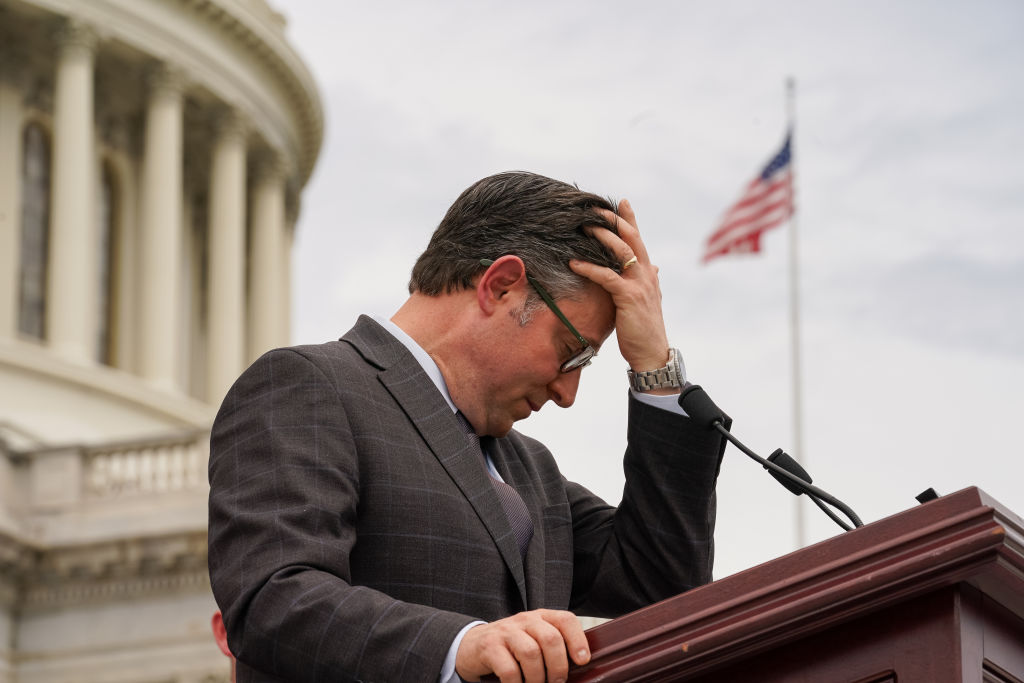The Earth now has 8 billion people. This man wishes there were none.
PORTLAND, Oregon - For someone who wants his own kind to disappear, Les Knight is a remarkably carefree human.
He regularly hosted meteor shower parties with rooftop fireworks. He hosted a long game of nude croquet in his backyard, which, it's worth mentioning, is surrounded by 20-foot-tall laurel hedges. Even Tucker Carlson failed to match Mr. Knight's exuberance. During a 2005 interview with Mr Knight on MSNBC, Mr Carlson criticized him for espousing "the sickest" of beliefs, but then added: "You are one of the happiest guests ever. we've ever had."
Mr. Knight, 75, is the founder of the Voluntary Human Extinction movement, which is less of a movement and more of a loose consortium of people who believe the best thing humans can do to help the Earth is to stop having children .
Mr. Knight added the word "volunteer" decades ago to make it clear that adherents do not support mass murder or forced birth control, or encourage suicide. Their philosophy is reflected in their motto, "May we live long and die", and in another of their slogans, which Mr. Knight hangs at various conventions and street fairs: "Please don't breed you."
On November 15, Earth became home to a record eight billion human beings. Despite declining birth rates, this number is expected to peak at 10.4 billion over the next few decades, largely due to rising life expectancies and declining infant mortality.
>Mr. Knight is among those who believe overpopulation is a primary driver of the climate crisis, but the idea can be heavy. Poor countries with large populations, such as India, contribute relatively little per capita to emissions of greenhouse gases that warm the planet. Wealthy countries with relatively smaller populations like the United States generate most of the pollution that is causing global warming.
"The problem that spiraling out of control is consumption,” said John Wilmoth, director of the United Nations population division, who argues that focusing on population control as a potential climate solution distracts from the urgent need for everyone to ditch fossil fuels and use resources more efficiently. "We need to transform the economic incentives that allow profiting from environmental pollution."
The idea of controlling population has also led to forced sterilizations and measures that have proven to be inhumane or have been linked to racist theories like eugenics.
Yet Stephanie Feldstein, Director of Population and of sustainability at the Center for Biological Diversity, said that greater longevity and health were good things, they came at a cost to other living things on the planet.
While the human population has doubled over the past half century, wildlife populations have declined by 70 percent. While declining fertility rates today won't change near-term emissions, she said increasing human populations will put increasing pressure on dwindling natural resources and the complex web of animals, birds and the plants that depend on them.
"Biodiversity loss can be just as devastating as it destroys the ecosystems we need to survive," said said Ms. Feldstein. "We are already using nearly twice as many resources as the Earth can replenish in a year."
One of the most effective ways to fight global warming change, say both climate activists and those worried about overpopulation, is to expand access to education for girls around the world, in addition to birth control and family planning. Nearly half of all pregnancies worldwide, some 121 million a year, are unintended. The Center for Biological Diversity, for its part, distributed one million

PORTLAND, Oregon - For someone who wants his own kind to disappear, Les Knight is a remarkably carefree human.
He regularly hosted meteor shower parties with rooftop fireworks. He hosted a long game of nude croquet in his backyard, which, it's worth mentioning, is surrounded by 20-foot-tall laurel hedges. Even Tucker Carlson failed to match Mr. Knight's exuberance. During a 2005 interview with Mr Knight on MSNBC, Mr Carlson criticized him for espousing "the sickest" of beliefs, but then added: "You are one of the happiest guests ever. we've ever had."
Mr. Knight, 75, is the founder of the Voluntary Human Extinction movement, which is less of a movement and more of a loose consortium of people who believe the best thing humans can do to help the Earth is to stop having children .
Mr. Knight added the word "volunteer" decades ago to make it clear that adherents do not support mass murder or forced birth control, or encourage suicide. Their philosophy is reflected in their motto, "May we live long and die", and in another of their slogans, which Mr. Knight hangs at various conventions and street fairs: "Please don't breed you."
On November 15, Earth became home to a record eight billion human beings. Despite declining birth rates, this number is expected to peak at 10.4 billion over the next few decades, largely due to rising life expectancies and declining infant mortality.
>Mr. Knight is among those who believe overpopulation is a primary driver of the climate crisis, but the idea can be heavy. Poor countries with large populations, such as India, contribute relatively little per capita to emissions of greenhouse gases that warm the planet. Wealthy countries with relatively smaller populations like the United States generate most of the pollution that is causing global warming.
"The problem that spiraling out of control is consumption,” said John Wilmoth, director of the United Nations population division, who argues that focusing on population control as a potential climate solution distracts from the urgent need for everyone to ditch fossil fuels and use resources more efficiently. "We need to transform the economic incentives that allow profiting from environmental pollution."
The idea of controlling population has also led to forced sterilizations and measures that have proven to be inhumane or have been linked to racist theories like eugenics.
Yet Stephanie Feldstein, Director of Population and of sustainability at the Center for Biological Diversity, said that greater longevity and health were good things, they came at a cost to other living things on the planet.
While the human population has doubled over the past half century, wildlife populations have declined by 70 percent. While declining fertility rates today won't change near-term emissions, she said increasing human populations will put increasing pressure on dwindling natural resources and the complex web of animals, birds and the plants that depend on them.
"Biodiversity loss can be just as devastating as it destroys the ecosystems we need to survive," said said Ms. Feldstein. "We are already using nearly twice as many resources as the Earth can replenish in a year."
One of the most effective ways to fight global warming change, say both climate activists and those worried about overpopulation, is to expand access to education for girls around the world, in addition to birth control and family planning. Nearly half of all pregnancies worldwide, some 121 million a year, are unintended. The Center for Biological Diversity, for its part, distributed one million
What's Your Reaction?















![Three of ID's top PR executives quit ad firm Powerhouse [EXCLUSIVE]](https://variety.com/wp-content/uploads/2023/02/ID-PR-Logo.jpg?#)







